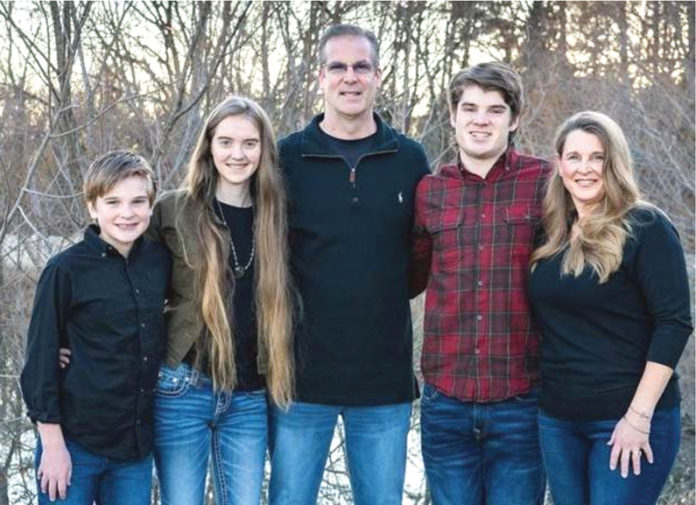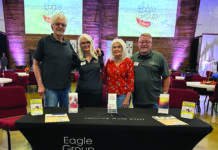
In June 2020, Cliff Allison of Tulsa suddenly developed a severe cough and shortness of breath. He sought urgent care, but was sent straight to the emergency room because his oxygenation was dangerously low.
“We thought he had COVID-19,” admits Cliff’s wife Crystal. “That was the fear on everyone’s mind, but all the tests came back negative.”
At age 53 with no prior health issues, Allison was admitted to the hospital in Tulsa with presumed pneumonia, but doctors were baffled because there was no obvious cause. His condition deteriorated quickly and he was moved to the intensive care unit, where they ultimately discovered the problem was with his heart. Allison had suffered acute severe mitral valve failure, likely due to a congenital heart defect.
“Because the valve was not closing, blood was backing up into his lungs with each squeeze of his heart. He was basically drowning from the inside,” explains Crystal. “He was placed on a ventilator as doctors attempted to clear his lungs enough to perform open-heart surgery. Despite all interventions, Cliff was stuck in a vicious cycle. His lungs continued to fill with fluid while his heart was too weak to clear his lungs.”
Doctors in Tulsa had exhausted all options. Allison was clinging to life when he was air-lifted to INTEGRIS Baptist Medical Center in Oklahoma City. His last hope was an advanced life-saving treatment called ECMO, or extracorporeal membrane oxygenation. ECMO does the work of the heart and lungs. It is not a cure, but it buys a patient time to heal.
ECMO is often called the ‘last hope’ for critical heart patients. For Allison, this was most definitely the case. As the helicopter landed at INTEGRIS Baptist, Cliff’s condition suddenly decompensated. Without a moment to spare, Michael Harper, M.D., a critical care intensivist, performed emergency ECMO cannulation and saved Cliff’s life.
“Mr. Allison arrived to our facility in dire straits,” confirms Harper. “His lungs were so full of fluid that they could not absorb much oxygen, and his heart was failing to the point that his blood pressure was critically low. He was dying before our eyes. He wouldn’t have survived another hour without ECMO. Our team moved rapidly to get him on support and stabilized, but this was only the beginning of his long road to recovery.”
Once on ECMO and stabilized, Marshall Bell, M.D., a cardiovascular surgeon with the INTEGRIS Heart Hospital, was finally able to perform the life-saving open heart surgery Allison needed to replace his mitral valve.
“I received a call from Dr. Michael Harper about a patient with a ruptured mitral valve. He was young, in renal failure, had shock liver and severe pulmonary edema. He was very unstable and would likely not survive the night. We both agreed to move ahead aggressively,” says Bell. “While the surgery went smoothly, we still had a long way to go before Cliff could be considered healed.”
Although the surgery was a success, it took weeks to wean Allison off of ECMO. He suffered several setbacks and was hospitalized for a total of 47 days, mostly in intensive care.
“Life is so fragile,” states Crystal. “In an instant we went from being a normal healthy family to one facing a sudden medical crisis. I found myself in frightening and unfamiliar territory, but I never felt alone. The staff at INTEGRIS showed such compassion, not just for Cliff, but for me. I will forever be grateful for second chances.”
Against the odds, Cliff miraculously pulled through. “So many prayers were answered. It is only by the grace of God and the dedication and skill of my care team that I am alive today,” claims Allison. “Because of them, I am still here to enjoy life with my wife of 28 years and my three children. I’m very grateful to still be here for my family.”
Cliff got to go home from the hospital in late July. Through extensive rehab and physical therapy, he has made a full recovery. He continues to live his life with no restrictions, only newfound gratitude.













